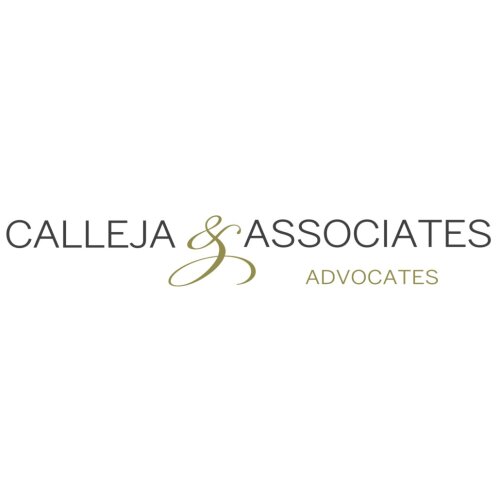Best Real Estate Lawyers in Malta
Share your needs with us, get contacted by law firms.
Free. Takes 2 min.
Free Guide to Hiring a Real Estate Lawyer
Or refine your search by selecting a city:
List of the best lawyers in Malta
About Real Estate Law in Malta
Real estate law in Malta plays a crucial role in governing the ownership, use, and development of property in this Mediterranean archipelago. Characterized by a rich history and diverse culture, Malta offers a unique blend of traditional and modern real estate opportunities, making it attractive for both local and international investors. The legal framework covers a broad spectrum of real estate - from residential to commercial properties - and ensures that transactions are conducted transparently and fairly.
Why You May Need a Lawyer
Engaging a lawyer when dealing with real estate in Malta is crucial for several reasons. Firstly, lawyers can assist in navigating the complex regulations surrounding property transactions, ensuring all processes comply with legal standards. Common situations where legal help may be necessary include:
- Purchasing or selling property, which involves extensive paperwork and legal obligations.
- Renting property, where lease agreements need to be carefully drafted and reviewed.
- Handling inheritance issues, particularly if real estate is part of an estate.
- Resolving disputes with landlords or tenants, or between property owners.
- Assisting with property development projects and ensuring compliance with planning laws.
Local Laws Overview
Malta’s legal framework for real estate is both comprehensive and unique. Key aspects include:
- Ownership Structures: Malta allows various forms of property ownership including freehold and leasehold.
- Transfer of Property Act: This governs the transfer of real estate and outlines the necessary formalities.
- Land Registration: Registering property is crucial for establishing and proving ownership legally.
- Rent Laws: These laws protect both landlords and tenants, outlining rights and obligations.
- Planning and Development Laws: All construction and property development must comply with national and local planning regulations.
Frequently Asked Questions
How can foreigners buy property in Malta?
Foreign nationals can purchase property in Malta subject to obtaining an Acquisition of Immovable Property (AIP) permit unless buying in Special Designated Areas (SDAs) where permits aren’t required.
What taxes apply to property transactions?
Stamp duty and capital gains tax are applicable on property transactions. Buyers typically pay stamp duty, while sellers might need to pay capital gains tax.What is the role of a notary in property transactions?
Notaries play a critical role in verifying documents, ensuring the legitimacy of the transaction, and registering the final deed with the Public Registry.
Are there restrictions on renting property in Malta?
Yes, there are specific regulations on short and long-term rentals to protect both landlords and tenants, including restrictions on tourist areas.
What are Special Designated Areas (SDAs)?
SDAs are areas where there are no restrictions on property purchases for both EU and non-EU citizens, aimed at promoting investment.
What should a lease agreement include?
A lease agreement should clearly outline the terms of tenancy, including duration, rental payments, and responsibilities of each party.
How does inheritance affect property?
Inheritance laws determine how property is distributed after a property owner’s death and may require legal processes to transfer ownership.
How can one resolve property disputes?
Property disputes can be resolved through mediation, negotiation, or legal action, with lawyers helping to navigate the legal landscape.
What are common costs associated with buying property?
Common costs include notary fees, registration fees, and any applicable taxes such as stamp duty.
Can I get a loan to purchase property in Malta?
Yes, local banks offer home loans to both residents and non-residents, subject to credit status and other banking criteria.
Additional Resources
For more information or assistance, consider reaching out to these resources:
- The Government of Malta - Department of Inland Revenue for tax implications on real estate.
- Planning Authority for guidelines on land development and construction.
- Local real estate agencies and property consultants who can provide market insights.
- Malta Chamber of Advocates for connecting with licensed lawyers specializing in real estate.
Next Steps
If you need legal assistance with real estate matters in Malta, start by consulting with a licensed real estate lawyer who understands the local market and laws. You can search through the Malta Chamber of Advocates or seek recommendations from local real estate firms. Always ensure the lawyer or notary you choose is registered and experienced in handling real estate transactions and disputes.
Lawzana helps you find the best lawyers and law firms in Malta through a curated and pre-screened list of qualified legal professionals. Our platform offers rankings and detailed profiles of attorneys and law firms, allowing you to compare based on practice areas, including Real Estate, experience, and client feedback.
Each profile includes a description of the firm's areas of practice, client reviews, team members and partners, year of establishment, spoken languages, office locations, contact information, social media presence, and any published articles or resources. Most firms on our platform speak English and are experienced in both local and international legal matters.
Get a quote from top-rated law firms in Malta — quickly, securely, and without unnecessary hassle.
Disclaimer:
The information provided on this page is for general informational purposes only and does not constitute legal advice. While we strive to ensure the accuracy and relevance of the content, legal information may change over time, and interpretations of the law can vary. You should always consult with a qualified legal professional for advice specific to your situation.
We disclaim all liability for actions taken or not taken based on the content of this page. If you believe any information is incorrect or outdated, please contact us, and we will review and update it where appropriate.
Browse real estate law firms by service in Malta
Malta Attorneys in related practice areas.
Browse real estate law firms by city in Malta
Refine your search by selecting a city.

















